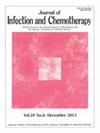抗生素不良事件的管理
IF 1.5
4区 医学
Q3 INFECTIOUS DISEASES
引用次数: 0
摘要
目的抗生素相关药物不良事件(ADEs)在临床实践中是常见和多样的,但卫生保健专业人员往往缺乏足够的了解。当出现疑似ade的症状时,考虑不周地更换替代药物可能导致抗生素的过度使用和误用。对ade的适当管理是抗菌药物管理的一部分。本文综述了ade的临床特点、诊断和治疗,主要表现为药热、皮疹、肾毒性、肝损伤、间质性肺炎、横纹肌溶解、脑病、QT间期延长、血小板减少和中性粒细胞减少。医疗保健专业人员应熟悉每种不良反应的典型症状、病程和可能的病原体。早期发现和正确判断很重要。在严重的情况下,需要尽早停用病原体并进行适当的治疗。如果不是致命的,继续使用疑似病原体并仔细监测可能有助于确定病原体。特别是在青霉素过敏中,重要的是要记住,大多数被标记为过敏的患者实际上是被错误分类的。本文章由计算机程序翻译,如有差异,请以英文原文为准。
Management of antibiotic adverse events
Purpose
Antibiotic-associated adverse drug events (ADEs) are common and diverse in clinical practice, yet healthcare professionals often lack sufficient understanding of them. An ill-considered change to an alternative agent whent symptoms of suspected ADEs appear can lead to excessive overuse and misuse of antibiotics. Proper management of ADEs is part of antimicrobial stewardship.
Areas covered
This review describes clinical characteristics, diagnosis and management of ADEs, featuring drug fever, rash, nephrotoxicity, liver injury, interstitial pneumonitis, rhabdomyolysis, encephalopathy, QT prolongation, thrombocytopenia and neutropenia.
Summary
Healthcare professionals should be familiar with the typical symptoms, time course and likely causative agent for each adverse reaction. Early detection and proper judgement are important. In sever case, early discontinuation of the causative agent and proper treatment are required. If it is not fatal, continuing the suspected agent and careful monitoring may help identify the causative agent. Especially in penicillin allergies, it is important to remember that most patients labeled as allergic are, in fact, misclassified.
求助全文
通过发布文献求助,成功后即可免费获取论文全文。
去求助
来源期刊

Journal of Infection and Chemotherapy
INFECTIOUS DISEASES-PHARMACOLOGY & PHARMACY
CiteScore
4.10
自引率
4.50%
发文量
303
审稿时长
47 days
期刊介绍:
The Journal of Infection and Chemotherapy (JIC) — official journal of the Japanese Society of Chemotherapy and The Japanese Association for Infectious Diseases — welcomes original papers, laboratory or clinical, as well as case reports, notes, committee reports, surveillance and guidelines from all parts of the world on all aspects of chemotherapy, covering the pathogenesis, diagnosis, treatment, and control of infection, including treatment with anticancer drugs. Experimental studies on animal models and pharmacokinetics, and reports on epidemiology and clinical trials are particularly welcome.
 求助内容:
求助内容: 应助结果提醒方式:
应助结果提醒方式:


